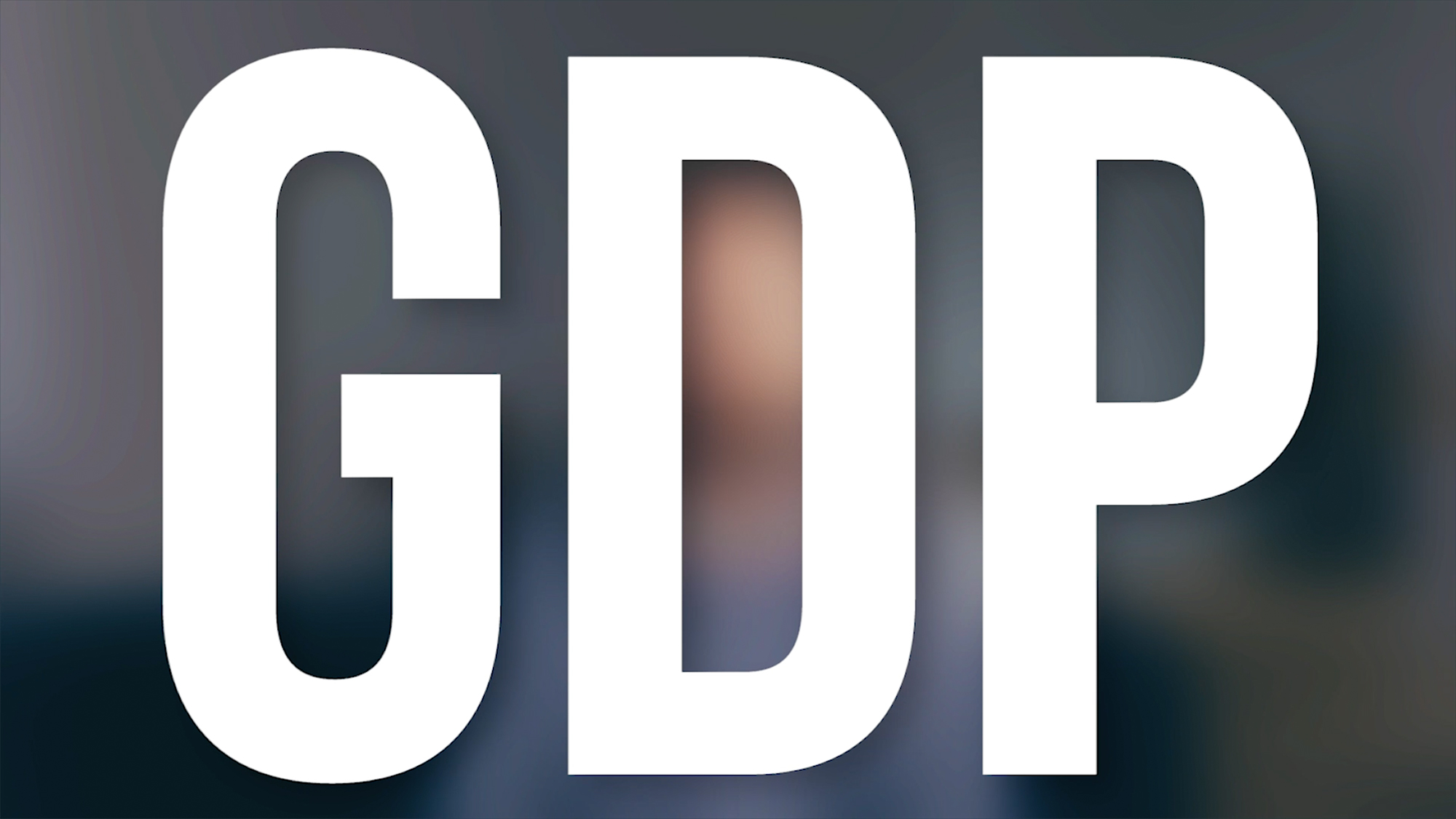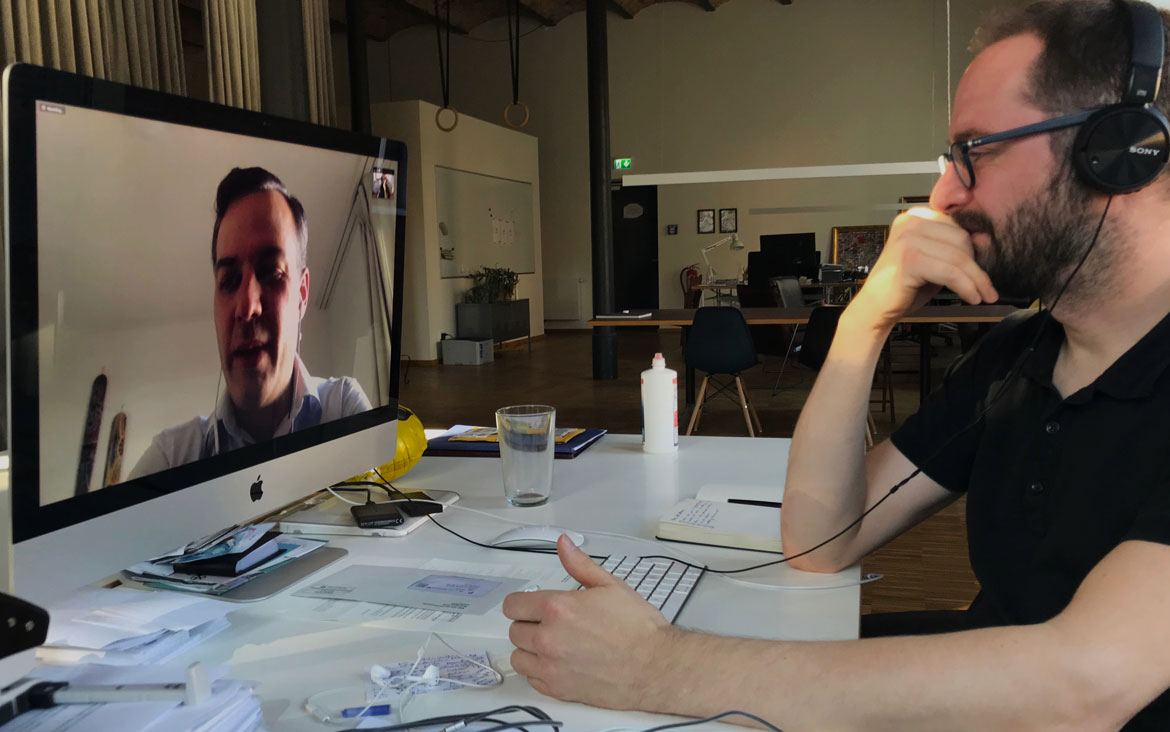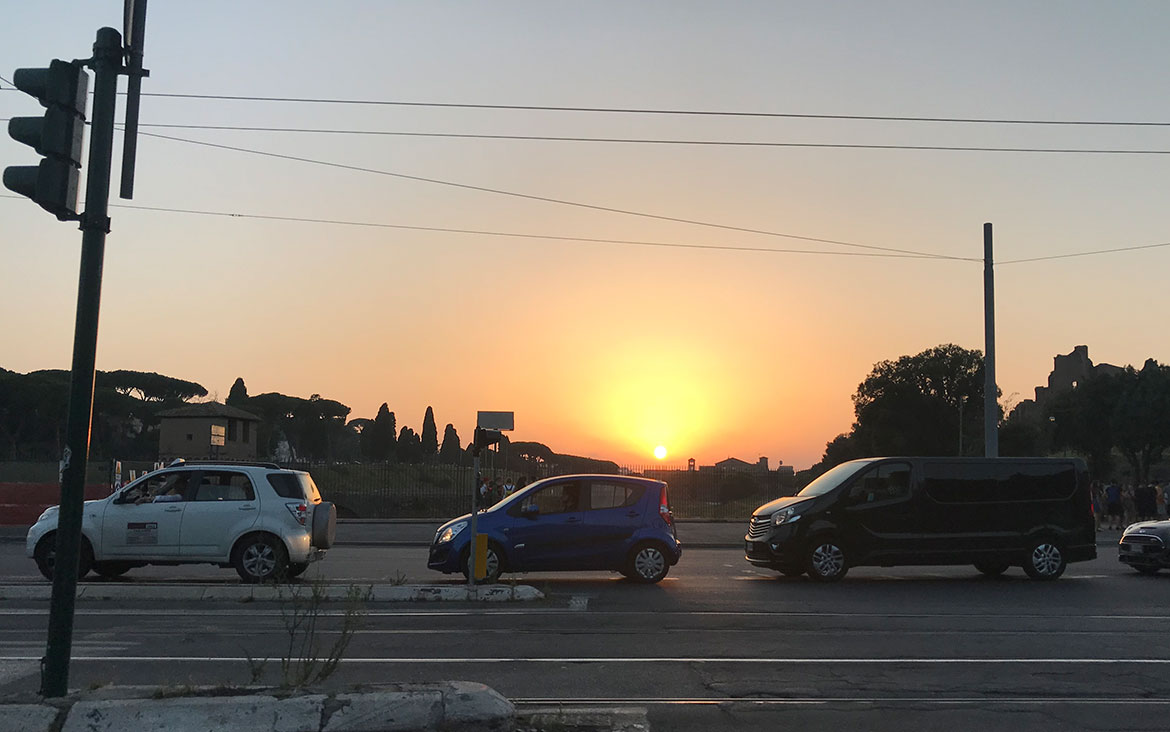Earlier this year, we’ve begun working on this documentary film. From the start, the project has required a lot of travelling. We’re going to Rome frequently, and we’re additionally shooting all around Italy. We’re filming in Scotland quite a bit, and also in a whole bunch of places between the two — different parts of Germany, England, Switzerland. Finally, we’ve been to Costa Rica for a few days and shot material at a sustainable fashion conference, and towards the end of this year we’ll even have the chance to go to South Korea to film at an OECD conference there.
A key concern of the protagonists that we’re filming — and our own, too — is climate change. That is why we are trying to make the shooting of this film as light on the environment as we can.
For our travels this means: The lion’s share of our trips around Europe are done by electric car, which we charge at stations that run on renewable energy. But that’s not always easy as flights are so ridiculously cheap. And driving from Berlin to Rome or from Berlin to Scotland takes two days in both cases — that is quite along haul. So there is always the temptation to fly. And we have flown — in cases when we would only be able to spend a couple of days on location. Going on a trip, driving two days both ways, in order to spend only two days in a place just makes no sense.
But we know that flight prices do not reflect the actual cost of these flights — they are heavily subsidised, so other forms of transport don’t stand a chance in comparison. Yet on an individual level, flying is the most energy-heavy form of travel. Anyone concerned about climate change should seriously think about the flying they do. So climatically speaking, flights should be much more expensive than they are. But they’re not.
So when we do have to fly we always compensate our flights’ CO2 emissions with Atmosfair. Atmosfair is a German non-profit that builds infrastructure around the world to help avoid CO2 emissions, and by paying them for compensation, we can help finance CO2-reducing infrastructur that corresponds with the CO2 that was emitted from our flights.
Finally, during the course of the project, I (Martin) have already become a vegetarian, and Nick has seriously cut down on his meat consumption.
We will also use this blog to report on our experiences with sustainable film making.



